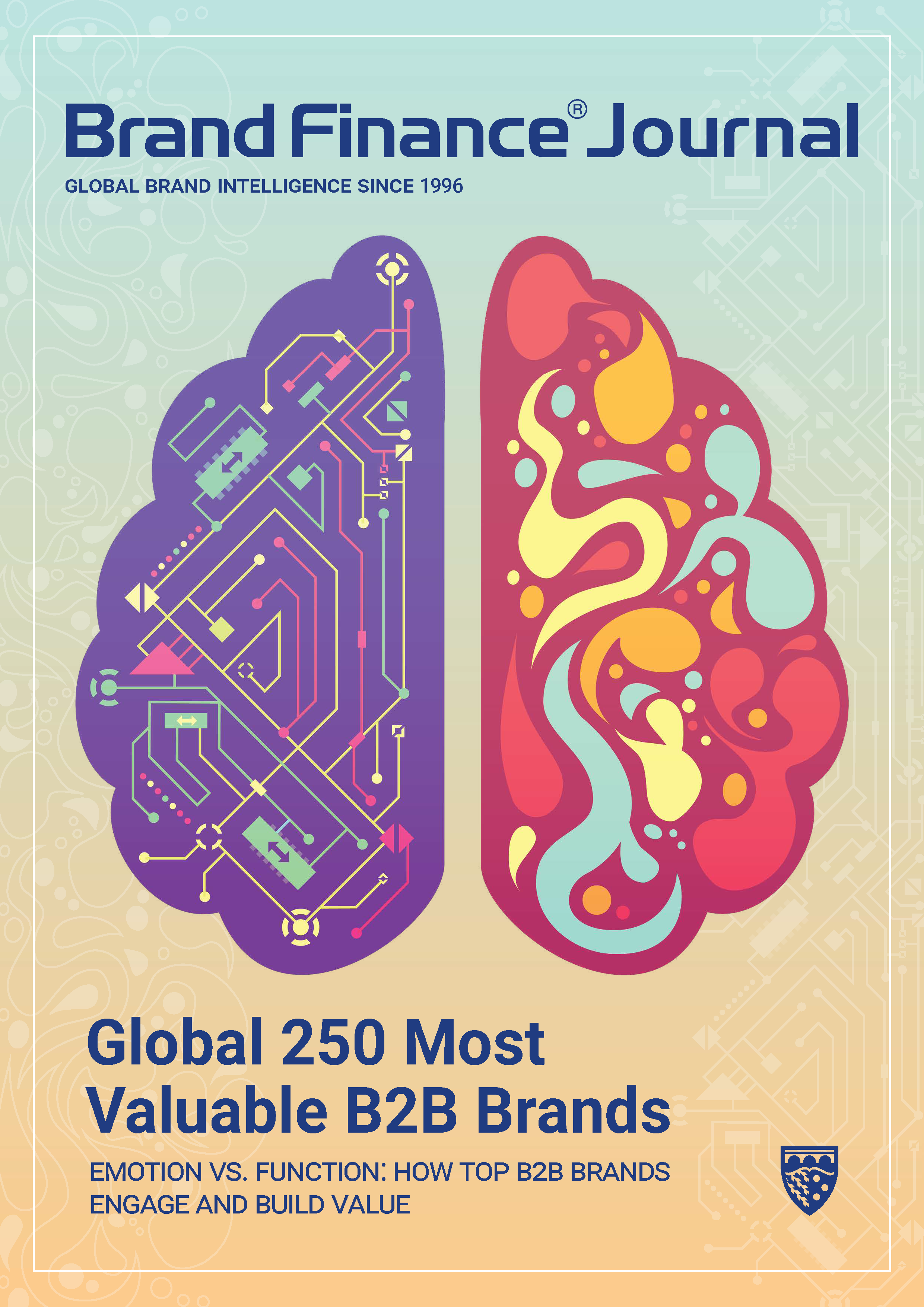By Andisa Ntsubane, 2024 Creative B2B Jury President, Cannes Lions
This article was originally published in the Brand Finance Global Most Valuable B2B Brands Index 2025
Across continents, industries, and crises, one truth is becoming increasingly clear: the brands solving the world’s biggest challenges are B2B. Whether it’s tackling energy security, redesigning digital infrastructure, enabling global trade, or securing data in an AI-driven world — B2B brands are doing the work that truly moves economies forward.
The 2025 Brand Finance report makes this real in economic terms: the top 150 global B2B brands grew their collective value by 8% between 2024 and 2025 — a quarter-trillion-dollar leap forward. Nearly half of the world’s most valuable brands are now B2B. Microsoft, which tops the list, saw its brand value surge to over $290 billion thanks to strategic innovation in AI, cloud computing, and enterprise productivity.
State Grid in China, Deloitte, NVIDIA, Shell, and Oracle are all rising in influence — not by shouting the loudest, but by showing up where it matters most: powering infrastructure and innovation, enabling trust, and delivering consistent value in an uncertain world.
These are not just brands of scale — they are brands of consequence. They are solving problems that cross borders and industries. In that sense, the rise of B2B is not a marketing trend — it’s a reordering of global relevance, and as I have said before, this is the decade of B2B!
And perhaps nowhere is this philosophy more deeply understood than in Africa.
On this continent, B2B has always been about more than transactions. It’s about trade routes, trust networks, and systems that underpin entire communities. It’s about solving first — and selling second.
Across sectors like logistics, telecommunications, energy, Agri-tech, and financial infrastructure, African B2B businesses are not marketing hype; they are economic lifelines. They bring structure where there is fragmentation. They bring connection where there is isolation. And they do so in ways that are adaptive, human-centred, and deeply rooted in local realities.
But this isn’t a story about Africa catching up. It’s a story about Africa having always understood something the world is only now waking up to — that in B2B, strength isn’t built on superficial scale, but on depth of relevance.
What the world is seeing now in global brands like Microsoft and Deloitte is something we in Africa have long practiced: a brand is not what you say, it’s what you solve. It’s not about polished narratives; it’s about consistent delivery.
In this sense, Africa offers more than examples. It offers a perspective. A way of thinking about brand not as performance, but as promise. Not just as visibility, but as value creation. B2B brands across Africa have shown us that creativity and utility are not opposing forces — they are partners. That’s why many of the best B2B brands globally — from Oracle to Shell to ADNOC - are moving closer to this same model: human, purposeful, multi-stakeholder, long-view thinking.
One can also see the shift in how brand strength itself is being measured. It’s no longer just about recognition. It’s about resilience, influence, ESG impact, innovation, adaptability, and trust. Deloitte, named the world’s strongest B2B brand in 2024 with a Brand Strength Index of 90.6, is admired not just for what it says, but for what it consistently delivers to a complex, evolving set of business customers. It is not just a leader in services — it is a model for how modern B2B brands integrate technology, talent, and trust into their operating DNA.
These are the kinds of brands we should all aspire to build — brands that are worthy of emulating. This is more than a phrase. It’s a philosophy. Brands worth emulating are not just admired — they are studied, referenced, and followed. They become the blueprint. They influence how others behave, not through dominance, but through demonstration. They hold themselves to a higher standard, and in doing so, lift the standard of the category. To build a brand worth emulating is to move beyond short-term metrics into long-term meaning. It is to lead with clarity, to serve with humility, and to operate with integrity — regardless of the market.
And as we look ahead, the task before us is not just to celebrate the rise of B2B. It is to accelerate it. That means making room for more diverse perspectives in global conversations.
It means recognizing that brilliance in B2B doesn’t only come from established centres of power. It comes from Nairobi, from São Paulo, from Jakarta, from Mumbai, from Johannesburg. It comes from any place where people are solving real problems in creative ways. In my speech as 2024 Jury President of B2B, I made the point that we cannot ignore the rise of Creativity in Brazil, and it was great to see the country recognized the inaugural recipient of the Creative Country of the Year in 2025.
All this means that those of us who have had a seat at the table must now pull up more chairs. B2B has a global future — and it must be shaped by voices that are representative of the globe. So, let’s challenge ourselves, as business leaders, as strategists, as marketers, and as B2B advocates. Let’s build B2B brands that do more than perform.
Let’s build brands that lead. That serve. That endure. Let’s build brands that are not only admired — but worthy of emulation!

